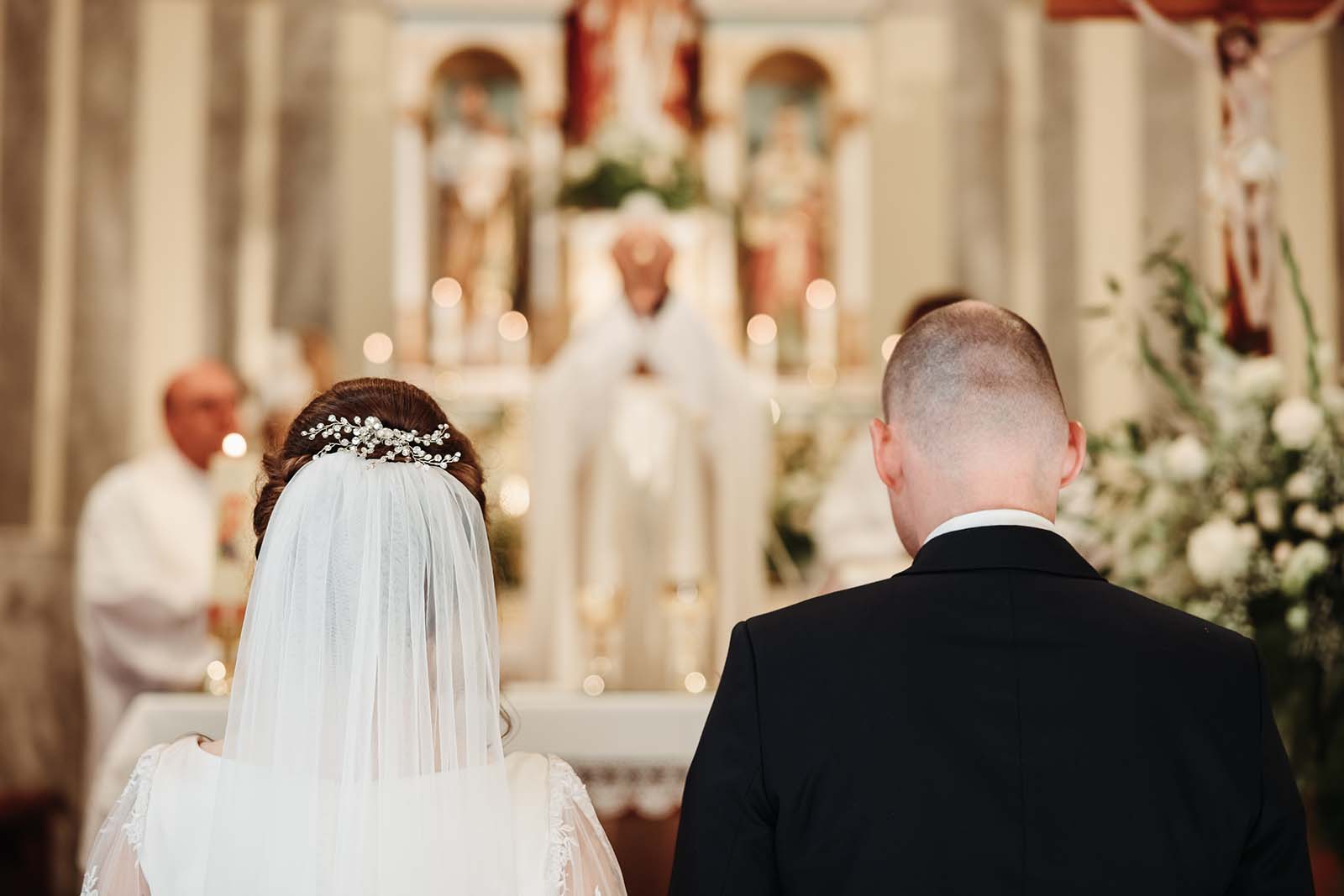NOTE: This article features some sensitive topics that may not be suitable for younger readers. Please use discretion.
Often young people challenge the Church: “Why must we wait until we are married to have sex? When I hear such questions I like to ask: “Why would you want to?” The young people are taken aback by that, thinking: “Doesn’t everyone want to?” But this question forces them to think and come up with a reasonable answer. The best one would be:
“Because we love each other.” Then I ask: “What is love?”
In answering that question, some will stay on the superficial: “Love is a warm, fuzzy feeling you have for the person you like… or it is strong emotional, sexual attraction for someone.”
Love is not something physical, it is not something emotional, it’s not a feeling—although it may be accompanied by physical expressions and strong emotions. No, love is spiritual, otherwise God could not love because God is pure spirit (see John 4:24) and “God is love” (1 John 4:8,16). So love must be spiritual.
So, what is it? Love is simply a union of spirits. When two people love each other then they become one: they begin to think the same way, and want the same thing. As St. John Paul II describes it: they begin to have one life-project. No longer do they live for themselves but now live for a common good, a common goal.
Yet human beings are not pure spirits, but we have a body, and everything spiritual about us must be expressed in a physical way: we express our thoughts—spiritual “intentionalities”—with words, physical sounds (air vibrations) we make with our mouth and vocal cords, splotches of ink as we write a note or love-letter, digital ones and zeroes as we send text messages or emails, etc. All these are physical means we use to express spiritual realities.
The same is true with love: it is a spiritual reality that must be expressed in a physical way. We express this spiritual union with a union of bodies: it could be by holding hands or by a kiss, a hug … or by the sexual union. Each of these expressions of love is a union of bodies that expresses a union of spirits.
At this point someone usually gets it and pipes up (most often it’s a guy): “So it is OK, father, since my girlfriend and I love each other and sex would just be expressing that love we have…” I reply: “But you love your mother, don’t you?” —“But father! That’s a different kind of love.” Then I ask: “What’s different about it? It’s OK to give your mother a hug or to hold her hand, or to give her a kiss. What does the sexual act say that the hug, the kiss, or the holding hands does not?”
It takes some time to think, but usually I can draw out the answer: Totality! In the sexual act you give your whole body to the other person, you don’t hold anything back, you don’t hide anything, or keep anything to yourself… you give everything. And the other person gives him or herself totally to you. It expresses a total spiritual union. You don’t have that with your parent, as your parent should only have such total spiritual and physical union with their spouse.
So, if a guy says to his girlfriend: “Honey, I really do love you a lot… and I want to give my whole self to you, without holding anything back… but just for tonight. How about it, can we have sex?” Her reply: “No way!” Why? Because it is not total. Then he tries a bit harder: “How about for the next six months? … As long as things work out?” “No, no, no,” is her reply. “How about until death do us part?” There you go, but what do we call that? Marriage!
The sexual union expresses the kind of totality we only see in marriage: a lifelong, total self-giving, and faithful love. That is why sex outside of marriage is a lie… a mortal sin at that! This includes masturbation—self- stimulation to induce sexual pleasure (see CCC 2352); adultery—infidelity to one’s spouse (see CCC 2380-84); fornication—sexual acts between an unmarried male and female (see CCC 2353), or uncommitted cohabitation in “free unions” or “trial marriage” (see CCC 2390-91); prostitution or harlotry—sexual acts done for gain (see CCC 2355). Besides being a lie, extra-marital sex may include violence: rape—forced sexual acts against an unwilling victim (see CCC 2356); incest or child abuse—sexual acts with close relatives or with minor children; polygamy—having multiple spouses (see CCC 2387); homosexual acts, etc.
Any action, word, willed desire—whether alone or with another—that detracts from true marital love is disordered. Such acts are mortal sins if fully voluntary, but are venial sins if we were only partially aware or we partially consented to the sin.


